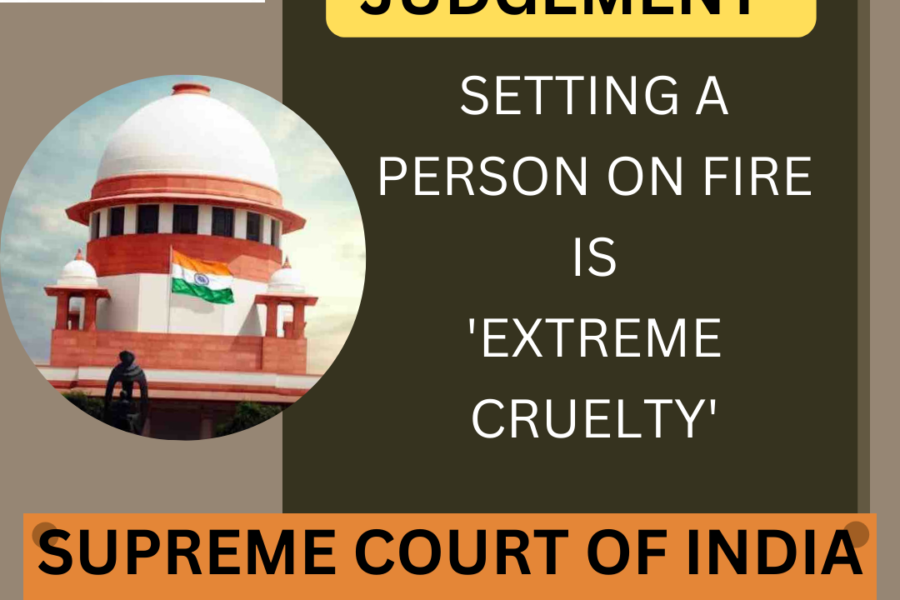Naresh v. State of NCT of Delhi
Criminal Appeal No.1189/2012
In a recent ruling, the Supreme Court noted that setting someone on fire constitutes an act of “extreme cruelty” and is punishable under Section 302 of the Indian Penal Code (punishment for murder), in an appeal contesting a man’s conviction and life sentence for killing his wife.
Judges Bela M. Trivedi and Ujjal Bhuyan’s bench dismissed the appeal and directed the appellant—whose sentence had been postponed in 2012 since he had served nearly 12 years in prison—to appear before jail officials in 4 weeks. Should he fail to comply, the court stated that “nonbailable warrants shall be issued against him and the jail authorities shall bring it to the notice of the Trial Court.”
In other words, the appellant’s wife was hospitalised for burn injuries and made a statement against him, which prompted the initial filing of a formal complaint under Section 307 IPC against him. Section 302 IPC was added after her injuries eventually claimed her life.
In her dying declaration, the appellant’s wife had stated that he was an alcoholic, who used to beat her when she would not give him money for buying liquor. On the day of the incident, he had come home in a drunken state and raised a similar demand. When she refused and told him to go to sleep, the appellant poured kerosene on her and set her on fire. Later, he tried to pour water over her to douse the fire.
The Trial Court found the appellant guilty under Section 302 PC, and he was given a life sentence. The High Court affirmed the Trial Court’s ruling. The appellant filed a Supreme Court motion in 2012. After the appeal was granted, he was freed on bond after the length of his detention was noted.
The appellant argued before the Supreme Court that he had no desire to murder his spouse.
Senior Advocate Sirajudeen represented the appellant and contended, based on the wife’s final declaration, that the appellant attempted to extinguish the fire by covering his wife with a pail of water after dousing her in paraffin. It was argued that, as a result, Part 1 of Section 304 IPC, not Section 302, applied to the case.
Amicus Curiae Aditya Singh was named by the court on the prior hearing date, expressing dismay over the lack of an appointment of counsel to represent the State in the matter. Singh argued at the hearing that the appellant’s guilt had been shown beyond a reasonable doubt and that two courts had produced concurrent conclusions of fact, meaning that they did not require intervention.
The plea sought to be filed on behalf of the appellant was not raised as a defence during the trial or at the time of recording his statement under Section 313 CrPC, the Bench noted after hearing the submissions and reviewing the material. The appeal was denied since the contested judgements were found to be without error.
Adv. Khanak Sharma

